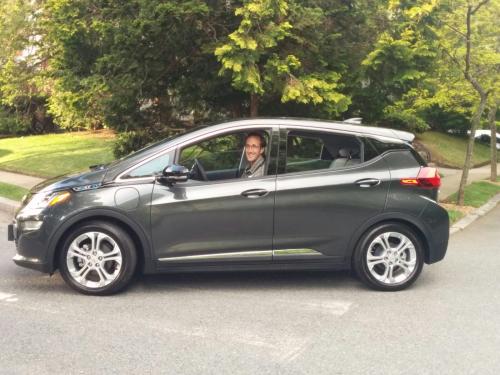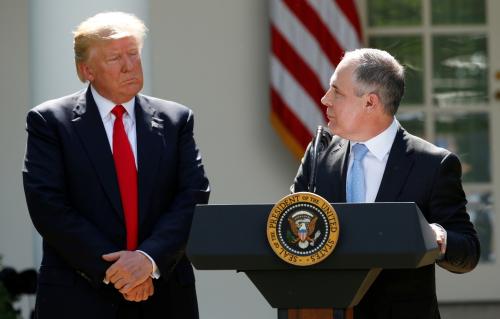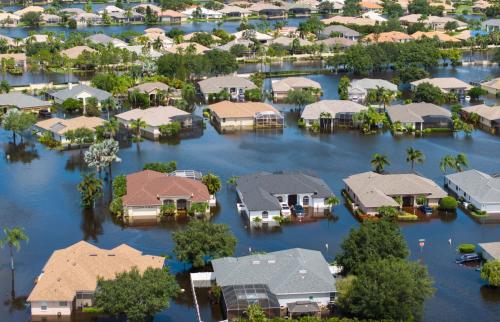Fossil fuels have to go. It didn’t take the latest report from the International Panel on Climate Change (IPCC) to tell us that: we’ve known it for three decades. But the report makes it clearer than ever: Burning billions of tons of coal, oil, and natural gas is creating a thickening blanket over the Earth, holding in its heat and disrupting all kinds of systems, from oceans temperatures and chemistry to storm patterns, creating heat waves, hurricanes, droughts, and floods.
Yet societal action has been stymied by fossil fuel industry lobbyists (for example, Americans for Prosperity and Crossroads GPS), their campaign contributions, their successful efforts to change society’s thinking on what governments are for, and their orchestrated amplification of any uncertainty in the scientific literature on the need to get off their product. While unsurprising, the scale and intensity of the effort is impressive. Most insidiously, by undermining peoples’ faith in our government to serve us in the addressing of difficult problems like climate change, the fossil fuel industry and its proxies have made our society not just unsustainable, but also ungovernable.
Activists concerned both about climate change writ large and about local impacts of fossil fuel extraction, transportation, and refining are using an array of strategies.
Yet there is one basic step we can all take to weaken this doomsday industry’s death grip on our culture: stop buying their product.
My family has taken a series of steps to slash our fossil fuel consumption. Some were easy and quick, some were not. In just a few years, though, our usage is just a fraction of what it was. We are not absolutists: our short-term goal is not zero fossil fuels, though we’d like to get there eventually. We see the tremendous concentration of energy in liquid fossil fuels as a great back-up system, a fallback for when the renewables need filling in. For example, we’re keeping our oil furnace and water heater for now, and slowly switching to biofuels made from cooking oil. We bought an all-electric plug-in car, and another plug-in hybrid car, which switches over to gas after its battery has drained. These are useful transition technologies to help us across some of the final steps to decarbonization.
Some first steps have propelled us down this road. First, we focused on reducing energy waste in our 100-year-old New England bungalow. With no insulation besides horsehair plaster and stucco, we had a home energy audit and then hired a company that sealed up cracks and drilled holes between each joist and pumped over a hundred bales of cellulose into the walls. The place was transformed, from a drafty and fairly miserable place to a warm and quiet nest. Our energy bills dropped by half.
Perhaps the easiest and most impactful step we took was to switch over to “green power,” bought through the grid from a local supplier, Green Energy Consumer Alliance. They have a mixed renewables plan, which uses small hydro and biodigesters, in addition to solar and wind facilities in the region. We went for the 100 percent New England Wind option, to see how much it would cost to have each electron we pull off the grid for our home replaced by an electron somewhere in the region released by a wind turbine. With an offshore wind resource right at hand, my state of Rhode Island could create two or three times its energy needs indefinitely, without pollution. Our buying this electricity has only cost about $20 a month extra, and the margin is tax-deductible.
We are buying substantially more electricity now, since we have leased an all-electric Chevy Bolt, and bought a plug-in hybrid electric vehicle (a PHEV), the Mitsubishi Outlander. The Bolt is the future car, with a range of 240 miles that allows us to charge it once or twice a week, from the “Level 2” 220-volt charger box I had installed by the driveway. Plugging the car in when you get home takes about 7 seconds, and you never need to stop at gas stations again.
The plug in hybrid gas Outlander feels like it has one foot in the future and one in the past, using the gas engine for backup after the 22-mile electric range is depleted. Getting the benefit of renewables and the efficiency of the electric engine actually takes more work with the PHEV, since you need to plug it in every night. But this small SUV allows us to have a car to tote the collies, the kids, and substantial stuff.
These electric car options have strongly shifted the pathway to near zero carbon economies. Here in New England, transportation is 40 percent of our carbon emissions, and just a few years ago that number seemed nearly impossible to address. Now we have options—cars that are zippier, cheaper to maintain, and delightfully quiet. Even using normal electricity off the grid, the Bolt gets an equivalent of 113 miles per gallon. Using all local wind power, it’s nearly infinite. The Union of Concerned Scientists did an analysis showing that even with the impacts of mining all that battery material and building the car, it pays off in carbon terms in about 9 months.
We’ve also changed how we heat and cool our house. Someday, we’ll electrify our hot water heater with a tankless unit, and switch to an all-electric air- or ground-sourced heat pump. This and solar panels for the roof are fairly major investments, and it would be good to do them at a time when we’re replacing existing infrastructure, like the furnace or the roof (which is getting old). In the meantime, we’re using our efficient wood stove, which I recognize causes some local air quality issues and is not zero carbon.
Two final areas have to be acknowledged and dealt with: our food system’s carbon intensity, and travel—especially by air. On the latter, I have cut way back on travel to conferences and giving invited talks around the world. I travel by train when possible or beam in by Skype. It’s not the same, and I will keep making a few carefully chosen trips, but this year alone Skype has saved me thousands of air miles.
We’re trying to eat less beef and lamb, which are among the worst foods for the amount of emissions they cause, and we eat vegetarian several days a week. Again, we are not absolutists, and believe that self-denial can lead to backsliding and even political backlash. We’re looking for sustainable levels of action, with the aim of leading satisfying lives that sharply reduce our impacts on the climate.
Individual solutions are not enough—we need to help our employers and churches get off fossil fuels, and push governments to level the playing field so that fossil fuels don’t continue to get massive subsidies. The World Bank calculated those costs at hundreds of billions of dollars, with subsidies shoring up a product that incurs huge societal costs by imperiling our health (asthma, cardio-vascular problems directly result from fossil fuel combustion) and damaging our ecosystems (from drought, sea level rise, and heavy metals deposited downwind of highways and power plants). We’re also supporting groups (also here) who are working on policy options like an economy-wide tax on carbon and providing dividends to residents and funding the kinds of efforts described above. We’re participating in efforts to shape our state and region’s energy policy and what goes on the grid to make electricity. Many of these are efforts to restore balance and transparency to our democratic system, which has become dominated by private interests over public ones. The system must change, it can change, and new legislation and strengthening existing programs will be crucial.
I don’t have numbers on this transformation in our household, but between insulation and biofuels and wood heat, our oil consumption is down by over 50 percent. Our gasoline use is down about 80-90 percent with the EV Bolt and the PHEV Mitsubishi. Our electricity is now 100 wind power, so these are not just Emissions Elsewhere Vehicles (EEVs).
Overall, my family has probably slashed our fossil fuel use by about two-thirds, and we hope to attain near zero carbon energy for our household soon. Through personal and collective action, we can wrest our society back from the fossil fuel industry. Based on the input of thousands of scientific studies, the new IPCC report says we need to. And we must.
The Brookings Institution is committed to quality, independence, and impact.
We are supported by a diverse array of funders. In line with our values and policies, each Brookings publication represents the sole views of its author(s).








Commentary
Climate reality requires starting at home: Weaning from fossil fuels
October 11, 2018